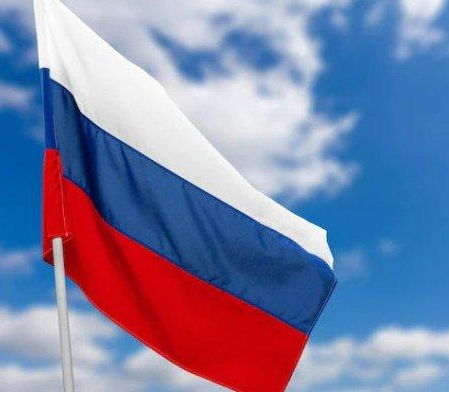
STRATEGIC ASSESSMENT. Following a series of widely criticized referendums, Russia is illegally annexing four southeastern Ukrainian territories: Donetsk, Luhansk, Zaporizhzhia, and Kherson. According to Kremlin spokesperson Dmitri Peskov, Russian President Vladimir Putin will deliver a speech formally announcing the move and indicated that agreements on “the accession of new territories into the Russian Federation” will be signed, even though Russia is not in full control of all these territories. The move will mark the largest forceable annexation of European territory since World War II and would be a devastating precedent if allowed to move forward without strident international condemnation. In a textbook example of “gaslighting,” after declaring these four regions as part of Russia, Putin will likely argue that any Ukrainian military action in these areas is an attack on Russian soil, not the other way around. The Kremlin has continued to make nuclear threats, with Putin stating: “I want to remind you that our country also has various means of destruction,” going on to add that he was “not bluffing.” This intentionally vague wording also leaves open the possibility that Russian forces could employ chemical weapons on the battlefield. But under no circumstances should Putin be allowed to get away with nuclear extortion and the illegal annexation of a sovereign state’s territory. Continued appeasement is not an option.
Earlier in the week, the United Nations Security Council held an emergency session during which Ukrainian President Volodymyr Zelensky addressed the chamber via video. “The annexation of the captured territories … is the most brutal violation of the U.N. Charter,” the Ukrainian president said. “This is an attempt to steal the territory of another state. This is an attempt to erase the norms of international law.” Annexation of the territories, he indicated, would mean “that there is nothing to talk about with the president of Russia.” Despite Russia’s efforts to seek legitimacy for this action through referendums, the votes this week have been widely criticized by the international community as a sham, with reports of votes being recorded at gunpoint and soldiers accompanying election officials door to door. UN head of Political Affairs, Rosemary DiCarlo, reaffirmed that “Unilateral actions aimed to provide a veneer of legitimacy to the attempted acquisition by force by one state of another state’s territory, while claiming to represent the will of the people, cannot be regarded as legal under international law.” In response, the United States is readying a fresh set of sanctions and the European Union will reportedly push through legal changes to allow for an international price cap on seaborne Russian crude as well as a new sanctions package.
In response to Russia’s flagging performance in the war and indications of widespread shortages in personnel, President Putin has announced a “partial mobilization” of men with military experience and expertise. The recent mobilization of reportedly 300,000 civilians has provoked a backlash throughout the country, with several recruitment centers attacked and demonstrations sprouting up in Russian cities and villages. Notably, these protests were spread across Russia and were not limited to the major cities where protests against the state have taken place in the past. This is in part due to the fact that conscription efforts have disproportionately targeted ethnic minorities and rural communities in Russia’s hinterlands. To avoid the prospect of fighting and dying on Ukrainian battlefields, tens of thousands of draft-eligible Russian men have fled the country for the few remaining states that allow visa-free travel for Russian citizens. As Russian military age males contemplate their options, some international observers have called on Finland, the Baltic States, and Poland to provide support through some form of humanitarian status for fleeing Russian men. There is a litany of security, legal, and political concerns associated with this option for not only the border states, but the entire European Union. Yet, such support, even if provided, may not have much of an impact, as Russia imposes internal border controls to prevent military aged males from leaving the country. Perhaps in a reflection of just how dire the manpower situation has become for Moscow, the Wagner Group, a private military company associated with the Kremlin, recently began recruiting prison inmates to join its organization. And while certainly not reflective of the actions of a “great power,” enlisting the help of rapists, murderers, and other criminals does indicate that Russia is growing desperate.
Russia is also suspected of being behind the sabotage of the Nord Stream undersea gas pipelines off the coast of Denmark, after several explosions were reported. John Brennan, former director of the Central Intelligence Agency (CIA), believes that if Russia was behind the sabotage, it was an effort to divide NATO countries and intimidate any countries that seek to oppose Putin. The attack also highlighted the vulnerability of critical infrastructure, especially pipelines, to similarly coercive attacks. The nature of the explosions has indicated to experts that this is the work of a state entity and beyond the capabilities of a non-state actor. Russian military forces are on the back foot following a powerful Ukrainian counter offensive in Kharkiv and other parts of northeastern Ukraine. NATO countries are determined to help Kyiv press its advantage and seek to build on the current momentum before the onset of winter and a slowdown in fighting. On Wednesday, the Pentagon announced an additional $1.1 billion of security assistance to Ukraine, which will include an additional 18 High Mobility Artillery Rocket Systems (HIMARS) and ammunition. The assistance package also contains additional counter-unmanned aircraft systems (C-UAS) platforms, which can be used to defend against increasing Russian employment of Iranian-manufactured (TSC).





